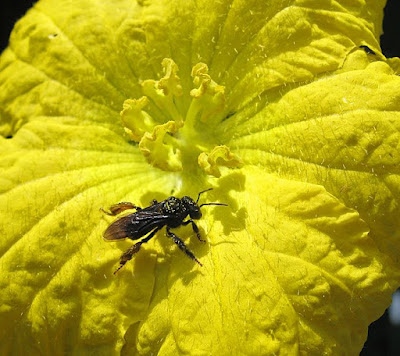 |
| Photo: Leonardo Re-Jorge, Wikim. Commons |
With emerging effects from an array of newer pesticides, many pollinator species are declining.
https://ento.psu.edu/pollinators/resources-and-outreach/globally-pollinators-are-in-decline
"Honey bees, other managed pollinator species such as bumble bees and orchard bees, and wild bees suffer from exposure to parasites and pesticides, and loss of floral abundance and diversity due to increased land-use. In addition, habitat destruction limits nesting sites for wild pollinators."
Huge numbers of invertebrate taxa may be facing extinction:
https://www.pnas.org/content/112/25/7761
See these resources devoted to pollinator conservation:
https://xerces.org/pollinator-conservation
This paper in the journal Trends in Ecology and Evolution lays out the problem succinctly:
https://www.sciencedirect.com/science/article/abs/pii/S0169534710000364







